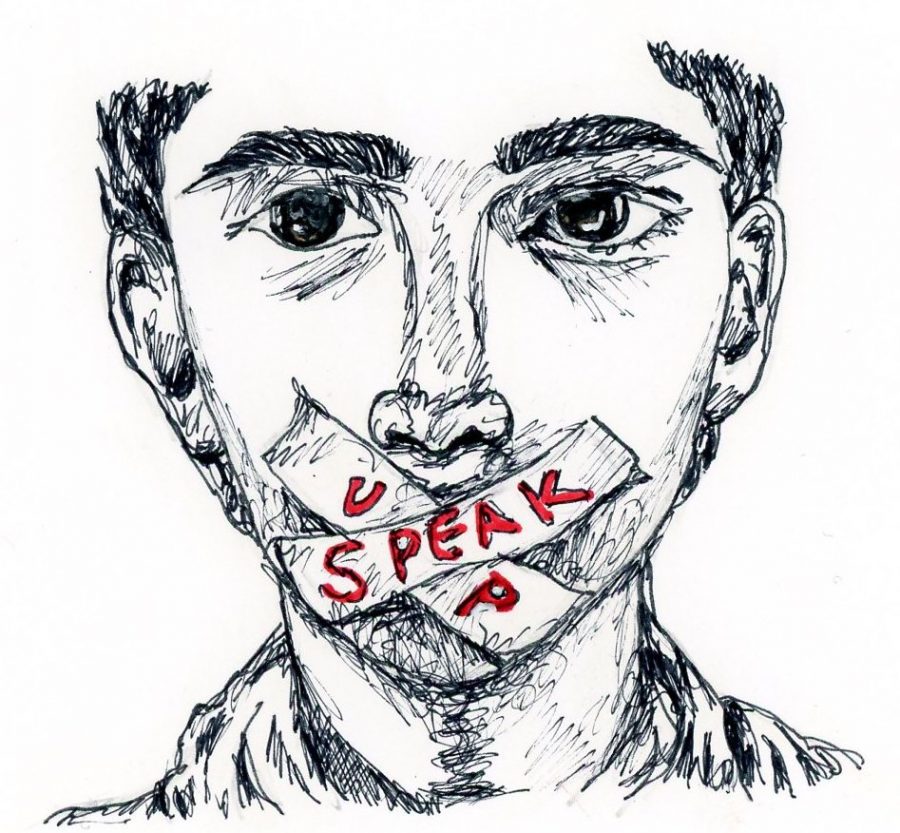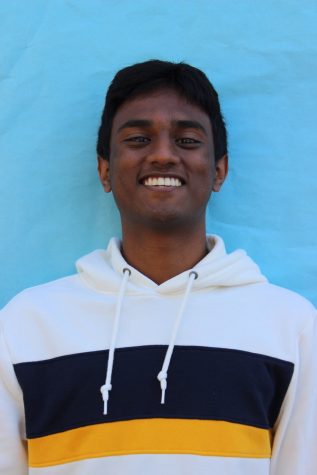Speaking the truth on free speech
May 30, 2019
“Free speech” has never been free. Common conceptions of free speech have always been based off the notion that speech affects each individual equally and that each individual has the same access to speak in the first place. Unfortunately, in many instances this could not be further from the truth, and because of the inherent disparities in how speech affects different demographics in our society, opinions cannot all be tolerated simply on the circular reasoning of it being an opinion.
With the rise of polarization and discriminatory, violent or false rhetoric, condemnations of such speech by activists are met with cries criticizing their lack of tolerance. Protesting Trump’s hate-filled rallies are viewed as violating the free speech of bigoted individuals. Calling for UC Berkeley to deplatform conservative speakers spewing hate is viewed as a form of intolerance.
But what these defenders of “tolerance” fail to realize is that sometimes, combating discriminatory rhetoric is necessary to preserve tolerance, which is outlined by philosopher Karl Popper’s “paradox of tolerance.” The paradox of tolerance states that “in order to maintain a tolerant society, the society must be intolerant of intolerance.” Unrestricted tolerance of intolerant opinions will eventually allow intolerance to gain so much traction that tolerance is overrun.
Essentially, there is a distinction between opinions on, for example, economic policy, and opinions that fundamentally threaten minorities, like the opinion that LGBTQ+ individuals don’t deserve equal rights, or that white people are superior. Tolerating the first opinion is part of a diversity of social and political discourse, while tolerating the second excludes certain groups from that discourse entirely, ultimately reinforcing intolerance. Treating both opinions as valid lends credence to the idea that discriminatory rhetoric is excusable with an almost comical defense of “that’s my opinion.”
“Bad speech” is exemplified by political commentator Ben Shapiro. His 2014 Youtube video “The Myth of the Tiny Radical Muslim Minority” argues that 800 million Muslims are “radicalized,” an assertion that was debunked by Politifact as false due to its over-extrapolated data and broad definition of “radical.” Coupled with tweets like “Arabs like to bomb crap and live in open sewage,” Shapiro espouses some of the most dangerous opinions in mainstream media today. This has already had disturbing implications. In May 2018, a gunman who killed six Muslim men at a Quebec City mosque was revealed to have visited Shapiro’s Twitter page 93 times in the month prior, more than any other account.
More recently, the Christchurch shooting which left 50 dead was found to have been the result of internet radicalization. The shooter’s appalling manifesto mentions influences like PewDiePie, and nine of Pewdiepie’s videos have been found to include antisemitic and Nazi imagery by the Wall Street Journal. Pewdiepie also has endorsed Youtuber E;R, whose channel features unedited videos of Hitler’s speeches. Even if PewDiePie himself does not espouse hate (arguable), the individuals he hosts in his videos serve as a gateway to such hate.
It requires willful ignorance to deny the responsibility of certain right-wing commentators and entertainment figures in the manifestation of violence against minorities. Hate crimes surged by 17 percent the year after Donald Trump took office and reiterated the same rhetoric spewed by those individuals. Hate has become presidential, and fighting it has become “intolerant.” Respecting different opinions is blindly considered sacred in the name of civility, while bigotry is tolerated.
“Civility” is overrated. Its advocates are almost always those who can afford not to care about politics and hate speech, because who is in office or the opinions they voice will not affect their access to basic rights and respect. These individuals can afford to value “professionalism” in politics over the lives lost to unfettered hateful rhetoric. Countless marginalized individuals do not have that luxury. The perpetuation of prejudiced opinions can promote shifts in societal attitudes that lead to discrimination in employment or education, government negligence that entrenches poverty in minority communities and even life threatening situations like Christchurch. “Civility” sustains a paradoxical power dynamic that expects the oppressed to somehow liberate themselves while simultaneously being conciliatory to their oppressor.
Yes, free speech undoubtedly needs protection. The government probably shouldn’t be the one to regulate speech because it often provides yet another tool for it to persecute minorities, because what’s to say something like speech against Israeli abuse of Palestinians wouldn’t be deemed hate speech for being anti-Semitic? But claims of a “slippery slope” 1984 dystopian society miss the point. The actions we should pursue are not through Congress, but rather the active deplatforming of those spreading hateful rhetoric. Colleges should refuse admittance to speakers like Milo Yiannopoulos and Shapiro, while entertainers like PewDiePie should do the same. Social media networks should remove hateful individuals from their platforms and those on television should deny any airtime on their shows to said people.
While colleges may face litigation due to this denial, the courts should reinterpret the current legal doctrine to allow colleges to suppress speech that is a threat to public safety. In a different method of resistance, the onus falls on counter-protestors to demonstrate sustained and forceful opposition to hate speech on college campuses, ensuring colleges are able to deny entry to these speakers based on “threats of a public disturbance.” Essentially, this gives colleges an excuse to deny entry to hateful speakers without facing the possibility of litigation. This method would additionally effectively protect far left speech because of the absence of said counter-protestors to progressive movements, despite their mass presence at events of hateful speakers.
While even this may constitute censorship, preventing white supremacists and other hate groups from accessing the mainstream is worth the potential censorship of certain progressive opinions because of the sheer number of lives saved. There is a definitive link between hate speech espoused through mainstream venues like colleges and entertainers and violence against marginalized groups, whereas far left opinions have still been able to succeed in alternative channels. For example, the backlash after President Trump said “both sides” of the Charlottesville protests, including the anti-fascist demonstrators present, were at fault shows that the public has a higher tolerance for ultra-progressive opinions. Far-right speech can usually only thrive and has a substantially higher risk of promoting violence when it is legitimized in the mainstream, while far-left speech historically has found other ways to succeed. Because of this, we would argue that the trade off that could result from deplatforming certain individuals, if it exists to begin with, is worth it.
The belief that every opinion must be respected by virtue of it being an opinion is a facade that sustains violence against minorities. Not all opinions are equal. Some are entirely worthless. Change requires opposing injustice — condemning and suppressing it when need be. Popper put it best: “We should therefore claim, in the name of tolerance, the right not to tolerate the intolerant.”




